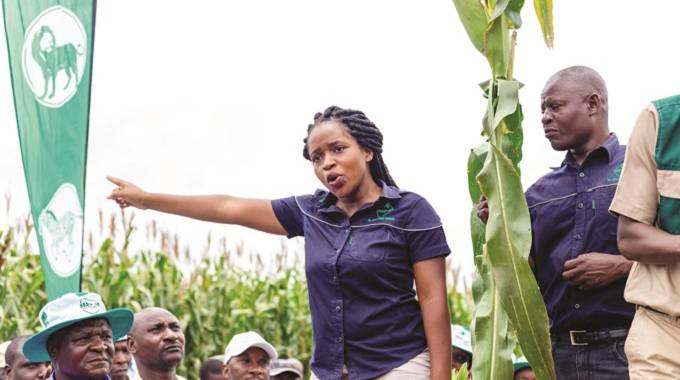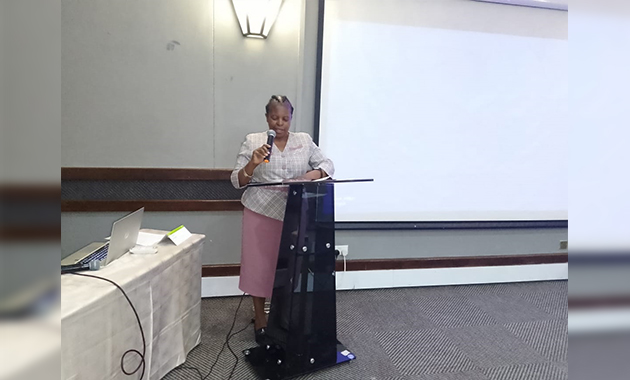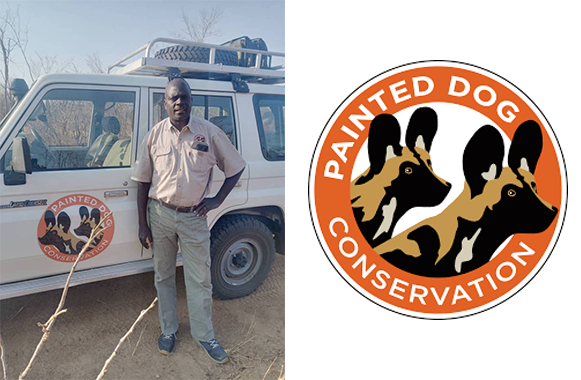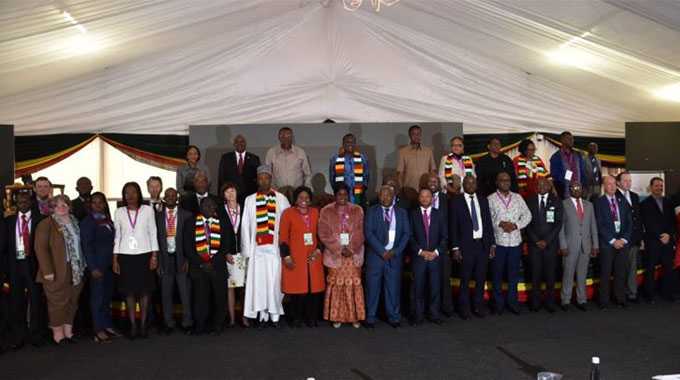Ex-banker crafts successful farming story

Joseph Katete
It is almost unimaginable that bankers can turn into very successful farmers.
There seems to be an unwritten code that makes bankers and people in the financial service system to be introverts.
They generally do not want to socialise even at workstations where teamwork is key.
They would rather look busy with their figures than discuss or interact with other team players that bring the money into the business for them to manage.
On the other hand, farming is almost a communal effort. Successful farmers come to the level of their workers.
They eat, work and play together. In the African context, the nhimbe concept shows that farming is not to be enjoyed, or is it endured, alone. There is need for community involvement.
These two professions are therefore at the extreme end of each other.
However, deep in Mashonaland Central Province, Matepatepa area to be specific, there is a banker who is changing this script.
Mr Douglas Munatsi, or simply Doug, as he is called by his peers in the banking sector, is a founding partner of DBF Capital Partners, a $70 million private equity company with operations in southern Africa.
Before the creation of DBF, Doug was group chief executive officer of ABC Holdings Limited which operated five banking operations in southern Africa under the BancABC brand.
Prior to the formation of the BancABC Group and its listing on the Botswana Stock Exchange in 2000 Doug was managing director of its predecessors, First Merchant Bank Limited and Heritage Investment Bank (Heritage) which he had founded in 1995.
After founding Heritage as its managing director and CEO, Doug successfully negotiated the institution’s merger with First Merchant Bank Limited, then controlled by Anglo American Corporation.
Heritage and FMB merged in 1997 and became the largest merchant bank in Zimbabwe.
Before venturing into business as an entrepreneur, Doug was an executive with the International Finance Corporation (IFC), the private sector arm of the World Bank.
He holds a Bachelor of Business Studies degree from the University of Zimbabwe, a Master of Business Administration (Finance) from the American University, Washington DC and completed the Harvard Business School’s Advanced Management Programme.
Despite being at home in the boardroom as his rich professional history highlights, Doug is finding himself equally at home in the fields of Kunatsa Estates, one of the most successful farming enterprises by a black Zimbabwean.
Kunatsa Estate is the current national winner of Seed Co’s Eleven Tonne Plus Club promotion. Doug and his team produced a staggering 21,2 tonnes of maize per hectare and were rewarded for their exploits by the seed manufacturer with a brand new Nissan double cab.
Seed Co’s Eleven Tonne Plus Club promotion targets commercial maize farmers and is meant to encourage them to produce more tonnage per hectare.
Last year, over 50 farmers entered the competition and achieved between 11 and 22 tonnes of grain per hectare.
A fortnight ago, Doug hosted a field day at Kunatsa Estate where he interacted and looked at home with other farmers and villagers in the Matepatepa area outside Bindura.
He looked to have the humility and patience of a farmer when he chose not to get the credit for himself when people commended him for the work being done at the estates and also winning the Seed Co’s 11-Tonne Plus promotion.
“I am extremely proud of our people and what we have been able to do with our business. It spurs us to do better and continuously improve our business,” he said.
Tellingly, he sees farming as a business and for sure it is business.
But what motivated him to venture into farming?
“We as a family decided at the turn of the century to invest in farming. We then set out to look for the right farming investment. Of all the ones we came across Hinton Estates (now Kunatsa Estates) was the most unique farming investment opportunity. Not only were the ethos of farming and the culture of farming anchored in God but they also practised Christian-centred farming practices. Kunatsa is a unique farming experience as we practise “zero tillage” which is environmentally friendly and practised,” he said.
Doug added that in 2001 they bought the farming estate from the Kearns family who had farmed in the Matepatepa area for many years.
“We bought a very successful farming business and have continued to improve on its successful history. We seek to continuously improve our yields and quality of produce. We also look at farming as a business which must make a profit and be sustainable,” he said.
He seems to be merging his banking experience where growth is emphasised by expanding operations at the estate.
“We want to start other agricultural activities. We currently produce milk and we want to expand this. We also produce honey and we also want to expand and grow this business,” said the soft spoken Doug.
Speaking at the same event, SeedCo’s Commercial Director, Mr Walter Chigodora, praised Doug for taking farming seriously.
“If Zimbabwe could have more people who are as serious in farming like Mr Munatsi, then the vision of being an upper middle income economy will be realised,” Mr Chigodora said.
Zimbabwe is an agricultural economy with more than 70 percent of the Gross Domestic Product coming from this sector.
This means that instead of operating in professional silos, Zimbabweans would achieve more if they take farming seriously as most people now have access to the land. Zimbabwe also boasts of generally a good climate for farming.
Doug’s story should therefore be replicated to many other professionals and politicians who still taking farming as a hobby.
– Joseph Katete holds degrees in Media Studies and Business Management (marketing management).
He is a public relations executive for a local parastatal and is passionate about branding and marketing communications.











Comments